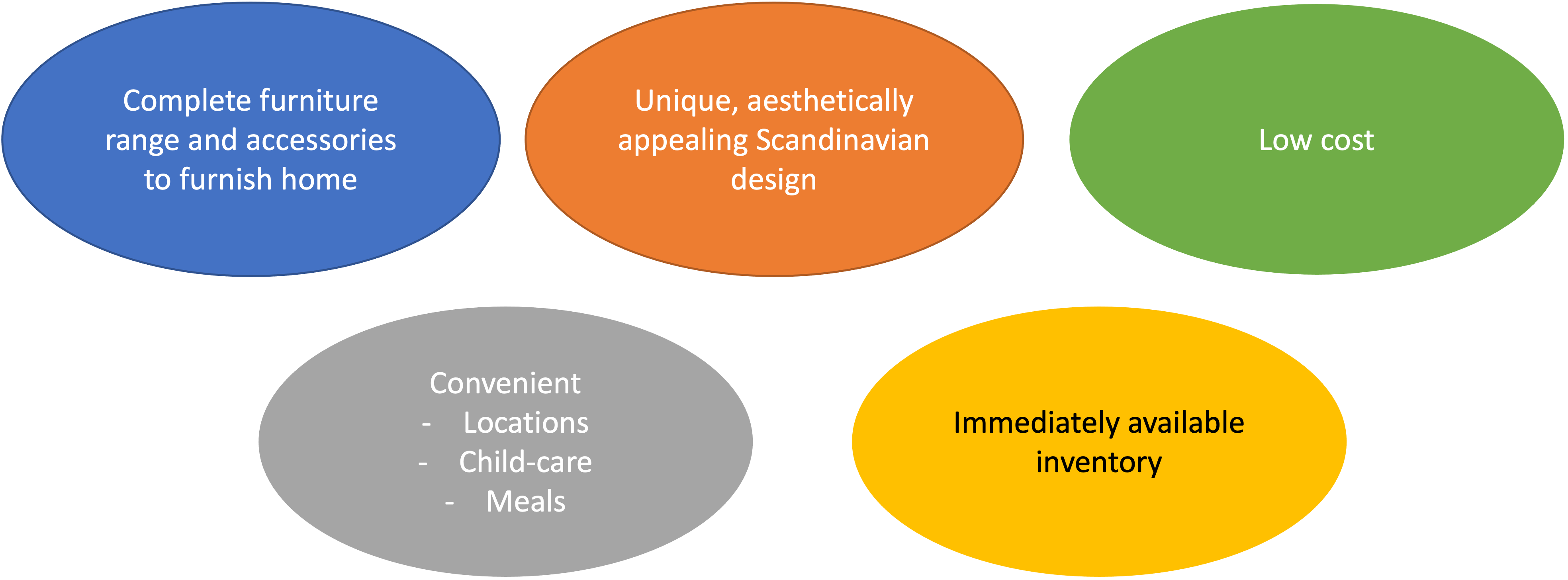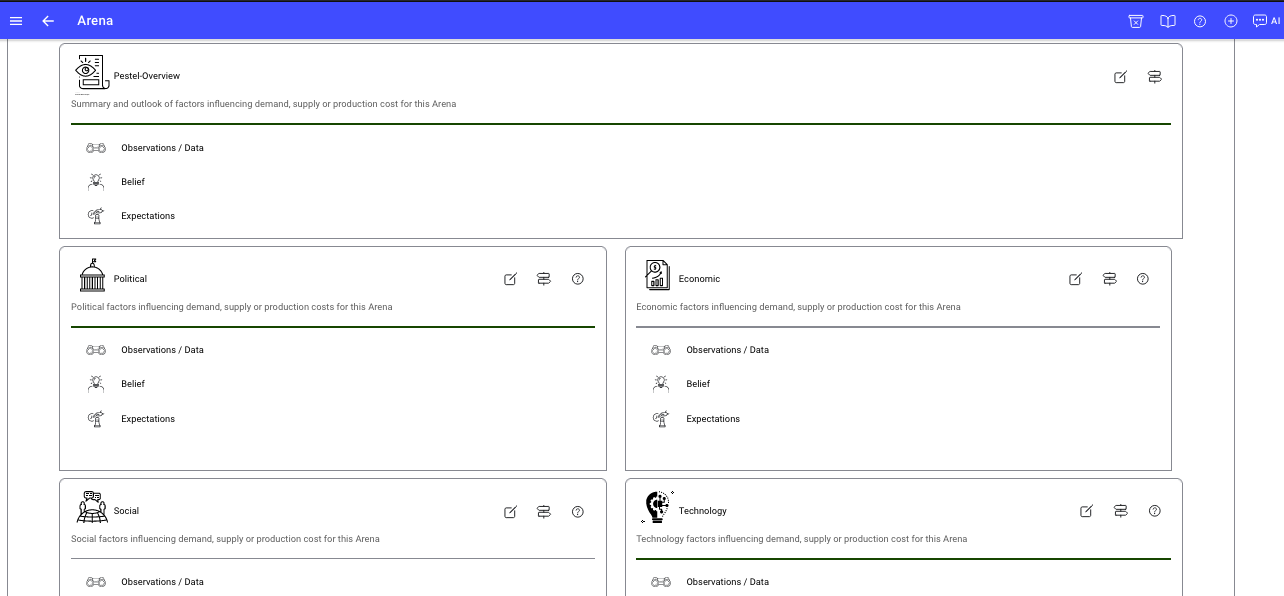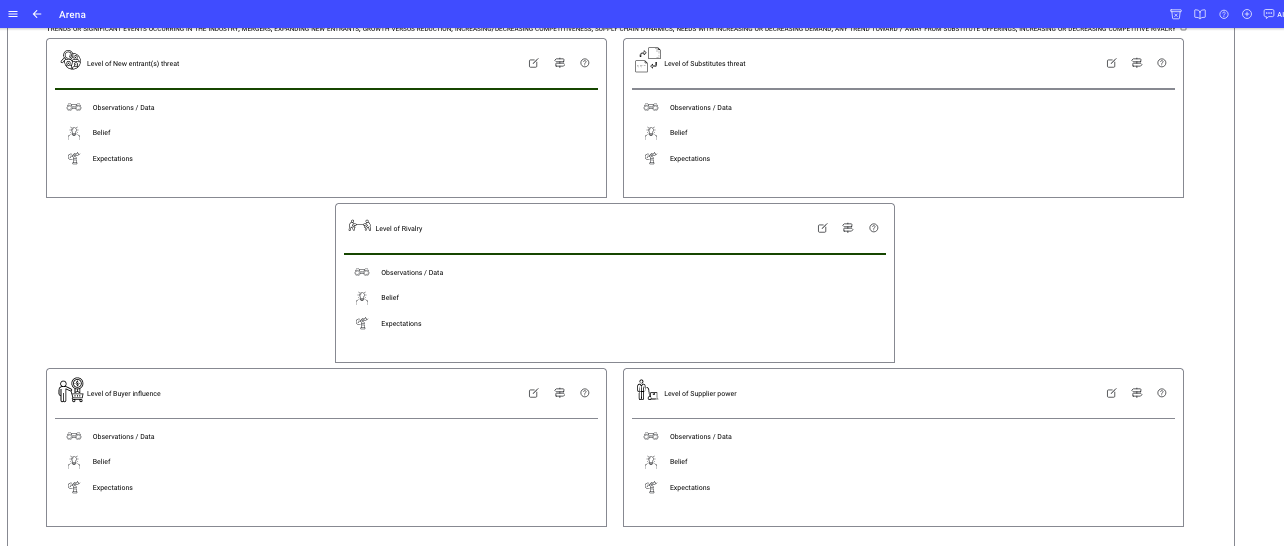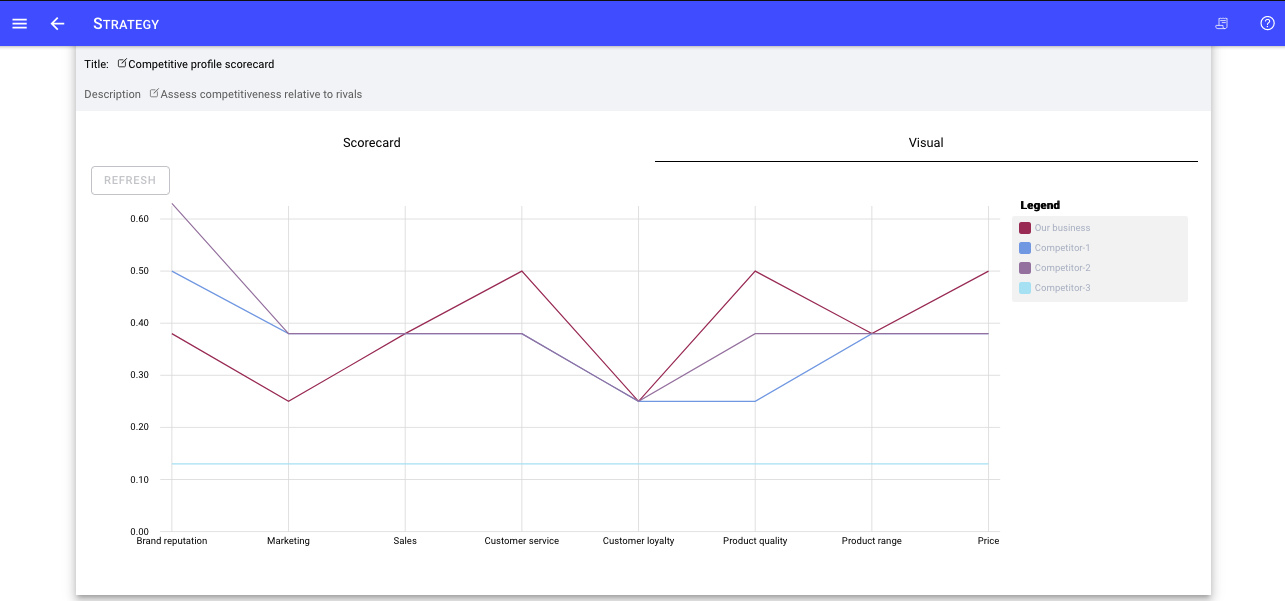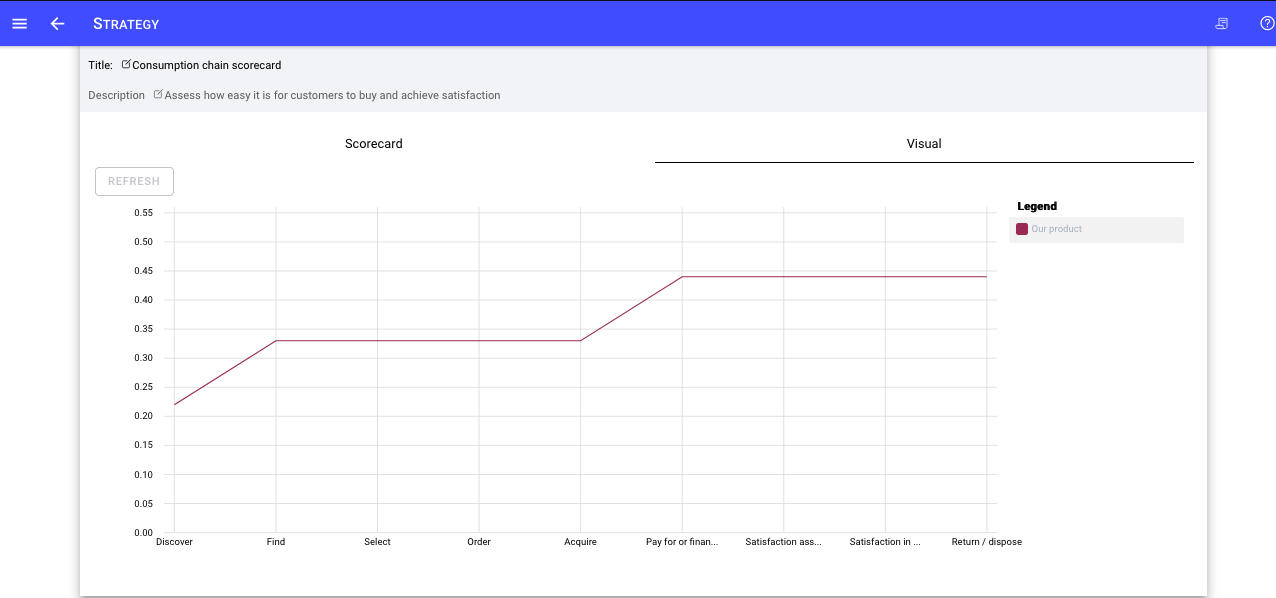Designing for superior business performance
A guide for technology, creative and startup leaders
"The aim of marketing is to know and understand the customer so well the product or service fits him and
sells itself.”
Peter Drucker.
Choice 3: Delight we create
Delight drivers
In this section
In this section you expand the unique value proposition model to make room for delight. You will be able to include the dominant principle behind Porters’ Activity System. In Porters activity system, the entry point is to identify the customer value drivers i.e. the drivers that represent value or delight to the customer. Then the delight / value drivers are linked to the activities the business needs to be able to do to deliver those value / delight drivers.

An example Activity System
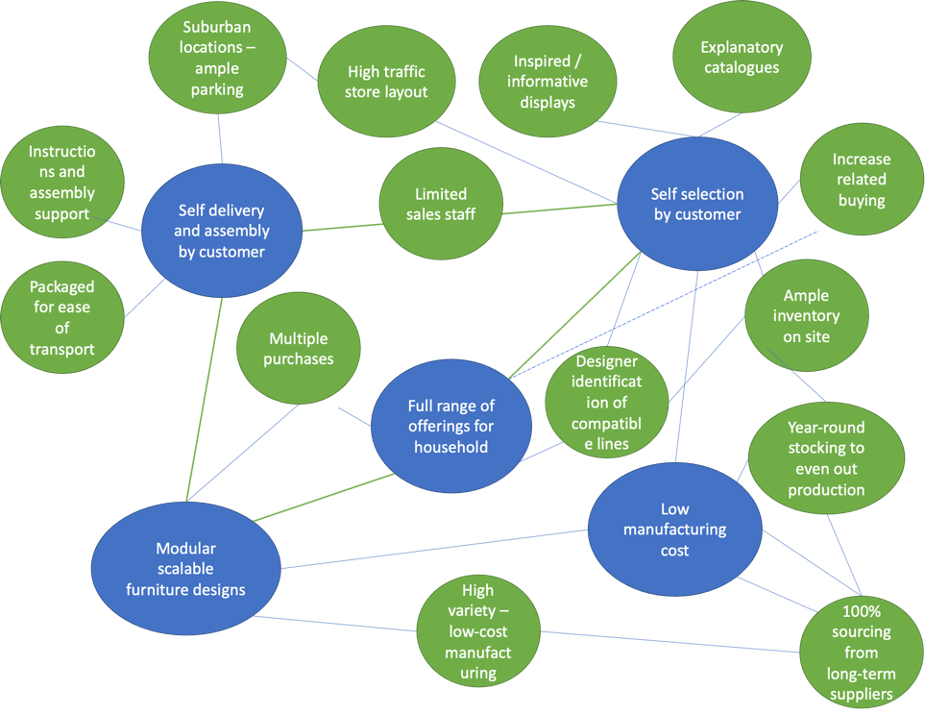
A Porter Activity map example
A Porter Activity map aims to identify the top level value drivers (shown in blue) and then map those on the activities the business or value chain must be good at to deliver those value drivers. Because the top level drivers may depend upon common activities the map then creates a mesh (connected graph) which represents the strategy by which imitation is proposed to be difficult to emulate in the delivery capability
Defining and designing your delight drivers
Steps to define and design your delight drivers
Review your delight narratives and extract the common themes. This could be 2,3 or 5 attributes of your value proposition
Define your unique blend (you can always adjust as you experiment and learn more). This could 2 - 5 drivers.
Identify what your value chain needs to be capable of to deliver those delight drivers.
Extract your candidate attributes to position your value proposition to have a unique blend to create delight (exceed expectations of your target customers)
A theme is feeling of delight or an attribute of your value proposition (e.g. convenience, customer confidence / security, the fastest Return on Investment, the best performance, easiest to use, most interoperable) the raises your target customers willingness to buy, pay or delight (exceeds their expectations)
Define your unique blend of delight drivers
Identify 2, 3, or more themes / attributes that collectively create a unique value blend Ensure as you review these delight drivers are support your customer narratives

Sample set of delight drivers
Identify the implications to deliver this value blend
Identify the capability, resource, people and technology implications to deliver this value blend. If the business does not have the resources to deliver all of the attributes or the full blend then, it will need to prioritise the ones that are within its capacity.
Examples
The idea of a value blend will be easier with some examples.
IKEA
IKEA is a privately held company pioneering flat packaged furniture. It sells Scandanavian designed furniture and accessories at budget prices in its huge and convenient showrooms throughout the world. It strategy was outlined in Michael Porters Activity map documentation more than 20 years ago. IKEA's ongoing strategy continues to make the business relevant and strong.
IKEA's value blend
|
IKEAs implications to deliver its' value blend
Candidate (observed) value driver set for IKEA |
|
|---|---|
| Delight driver | Implication for value chain |
|
Complete furniture range |
Capability to design furniture for every room in a house Capability to design affordable accessories |
|
Aesthetically appealing Scandanavian design |
Designers skilled to be expert in aesthetic furniture design - Scandanavian style Scandinavian style supportive of target customer aesthetic tastes and sustained uniqueness. |
|
Low cost |
Outsource manufacturing to low cost but quality manufacturers Sustained long term relationships with quality manufacturers. Eliminate manufacturers lacking sufficient quality, timeliness, and cost-effectiveness. Diversity in the manufacturing supply chain to reduce risk of supplier failure and reduce supplier bargaining power. Few sales staff in stores. Flat packaging for reduced transport and storage costs. Customer provides transport to home and assembly. |
|
Convenience |
Showrooms in suburban locations (not too expensive) to acquire the site Onsite car-parking. On-site child care / meals. Catalogs and maps allowing customers to find the items they are looking for All furniture assembled and in co-ordinated room packages e.g. full bedroom setup (bed, bedside cabinets, tallboy etc). To conveniently purchase a full room solution. Prices and product descriptions easily accessible, so as to reduce the need for sales or support people. Take the tickets for items to be purchased rather than pushing huge carts with the flat packs around the store. Detailed instructions for self-assembly. Quality management to ensure customer has all the components and instructions to complete the self assembly. |
|
Immediate gratification |
Savings from reduced sales people to make capital available for abundant Inventory onsite Items picked for customer at time of checkout - inventory management to ensure item availability and rapid delivery to checkout Management systems to allow customer to Defer pick up of items until convenient Self assembly by customer as soon as they like with complete package of all components, and easy to understand instructions, in their language. |
Continue . . .
Advance your strategy productivity
Define, refine and implement your strategy faster, easier and better
Build delight directly into your unique value proposition in StrategyCAD™
Try it Learn moreYou can try StrategyCAD™ free for 30 days to build your high performance strategy
